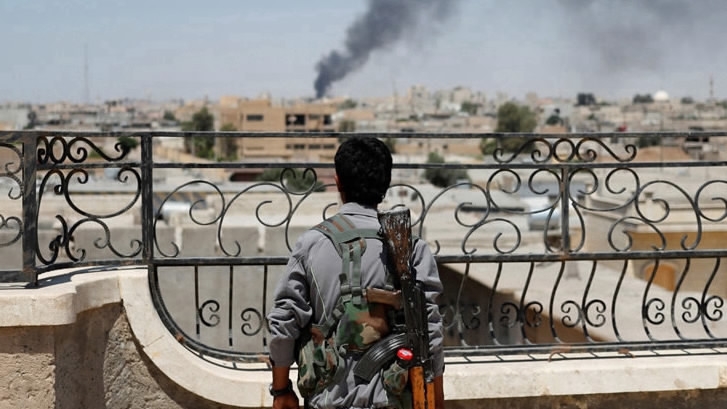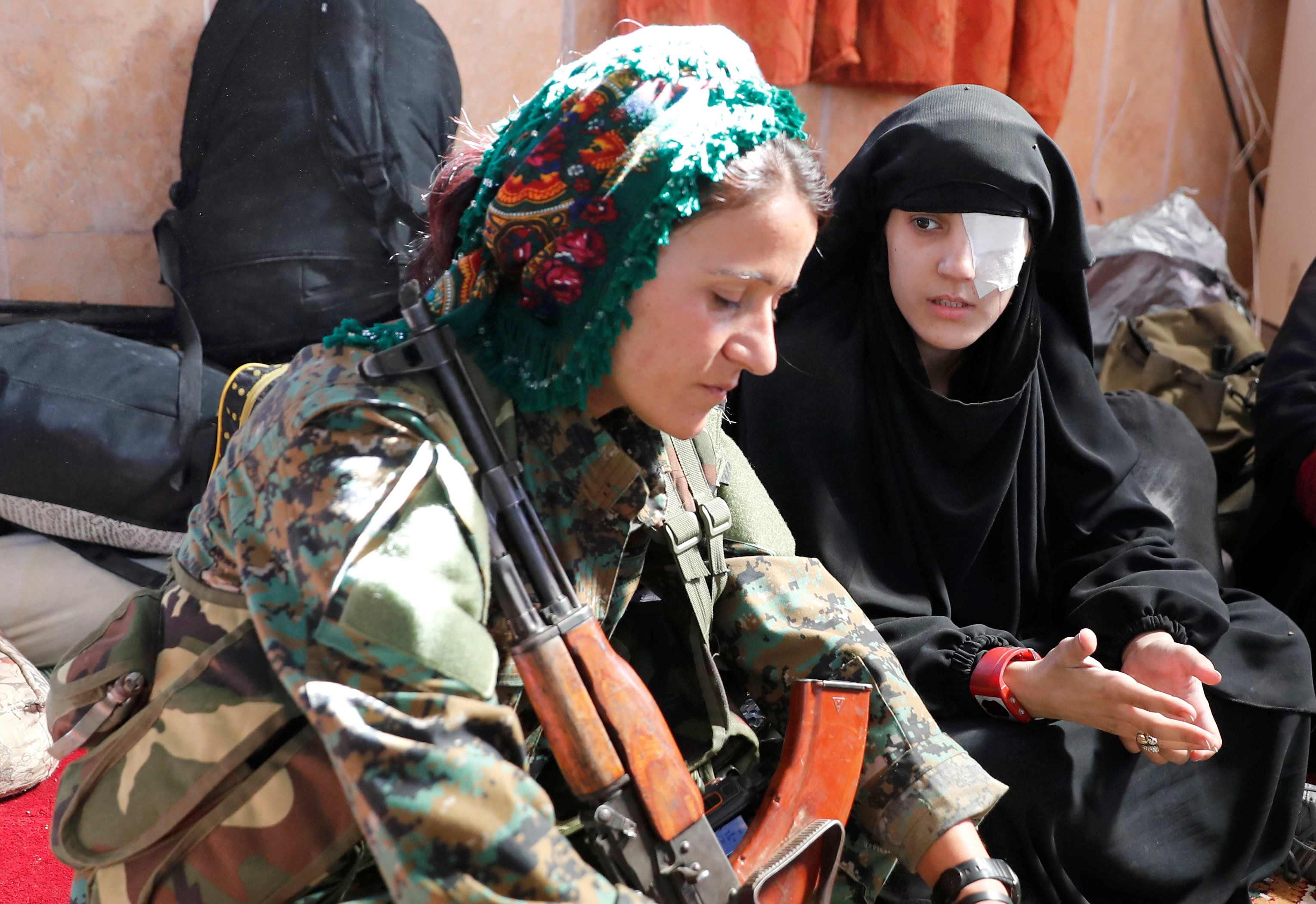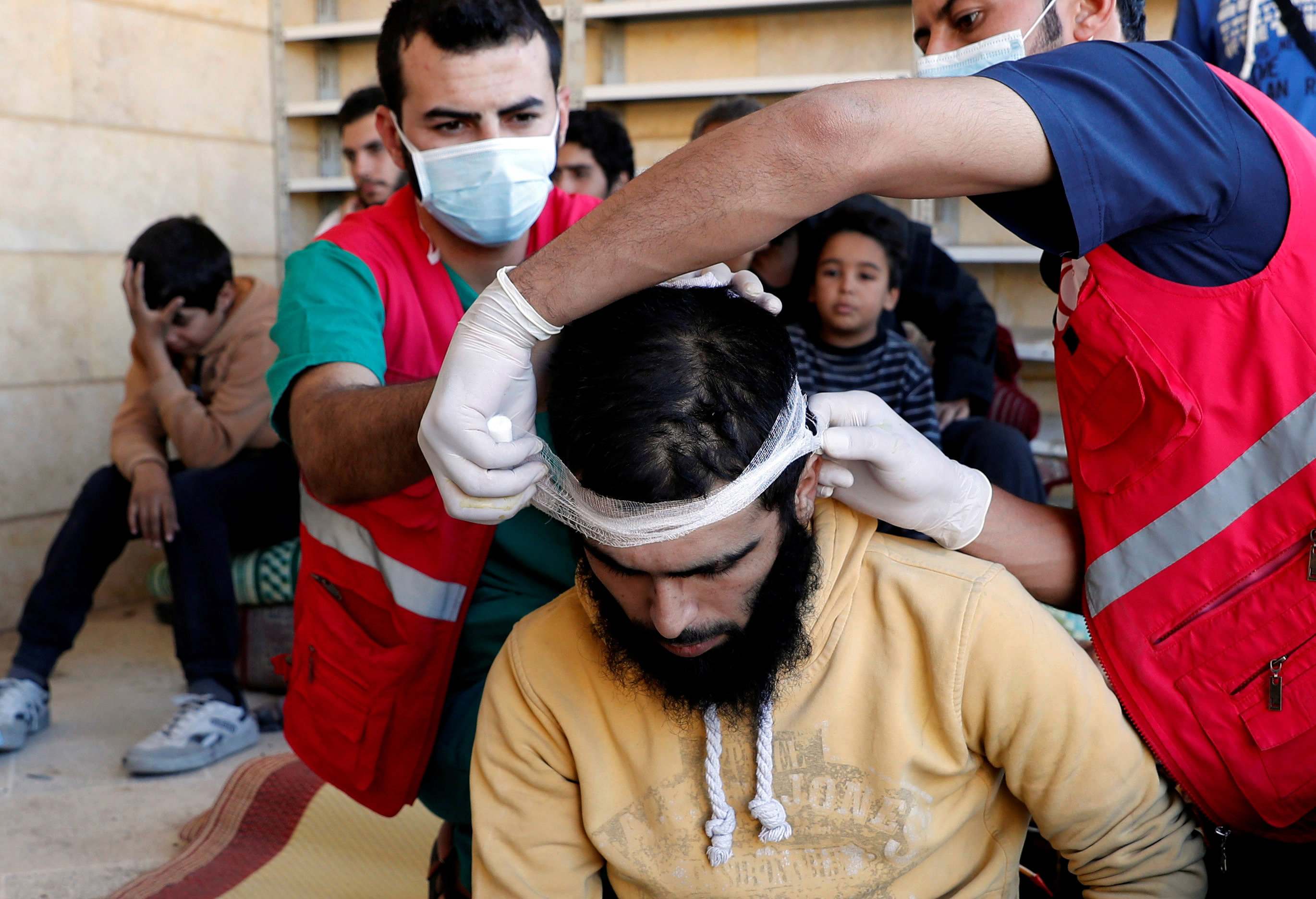
Politics
13:09, 15-Oct-2017
Syrian ISIL militants evacuate Raqqa, fate of foreign militants still unclear
CGTN

A group of Syrian ISIL fighters in Raqqa has exited the northern Syrian city overnight after the US-backed Syrian Democratic Forces (SDF) agreed on their withdrawal, but conflicting reports still obscure the fate of foreign militants fighting with the terrorist group there.
The fighters took civilians with them as human shields, SDF spokesman Mostafa Bali told Reuters. He noted that they refused to set their hostages free and opted to release them once they get to their destination to ensure their own safety.
Estimates put the number of Syrian and foreign-born militants in Raqqa prior to the evacuation arrangement at 500 people, with around 400 civilians, including women and children, taken as hostages.
It was not immediately clear how many jihadists agreed to leave and whether all hostages accompanied them.
Foreign fighters included?
Also unclear was whether ISIL fighters from overseas were allowed to board the buses.
Bali stated that foreign-born fighters did not leave under the withdrawal agreement, however, Ali Alloush, a member of the Raqqa Civilian Council, said a group of them had departed with the others.
Another SDF spokesperson Talal Silo had said on Saturday that foreign fighters would be left behind “to surrender or die."
The destination of the fighters was not announced, although it has been suggested that they would be shuttled to Deir Ezzor province, where the Syria army has launched a military offensive against the militants there.

A civilian who got wounded by an air strike in Raqqa talks to a
fighter of Syrian Democratic Forces (SDF), October 12,
2017. /Reuters Photo
A civilian who got wounded by an air strike in Raqqa talks to a fighter of Syrian Democratic Forces (SDF), October 12, 2017. /Reuters Photo
Civilian evacuation
An initial agreement was reached between the Raqqa Civil Council and local tribesmen earlier this week, under which civilians would be transported outside the city.
Jihadists were prevented from accompanying the civilians, with the US-led coalition against ISIL on Saturday warning of fighters being allowed to "escape Raqqa without facing justice."
The coalition itself was not involved in striking the arrangement, but the SDF, which it backs, was in charge of monitoring the evacuation operation and screening those who board the buses.

Medics treat civilians who got wounded in
Raqqa, October 12, 2017. /Reuters Photo
Medics treat civilians who got wounded in Raqqa, October 12, 2017. /Reuters Photo
But late on Saturday local tribe leaders announced they managed to reach an agreement with the SDF to “settle the status” of the jihadists in order to “protect the lives of civilians who were taken as human shields,” according to a statement cited by AFP.
Fighting continues
With the evacuation operation now over, SDF's Bali said the battle to drive out those who remain in Raqqa resumed.
The noose has tightened around ISIL in its de facto capital in the country with the group losing more than 90 percent of the city's territories it once controlled to the SDF, whose Kurdish and Arab militias have besieged the city for over four months.
The fall of Raqqa would mean the crumbling of the “caliphate” ISIL announced in 2014 in Syria and Iraq, following its defeat in Mosul earlier this year.
The SDF managed to enter Raqqa in June and has since succeeded in recapturing most of the city, from where militants had planed attacks in the West.
"Daesh is on the verge of being finished in Raqqa in the coming days," said Nuri Mahmud, a spokesman for the Kurdish People's Protection Units, an integral part of the SDF.
ISIL is under attack from two separate campaigns by the SDF and Syrian army in Deir Ezzor province near Iraq.
On Saturday, the Syrian army captured the city of Mayadeen – one of their last key ISIL strongholds in the border province.
Source(s): AFP
,Reuters

SITEMAP
Copyright © 2018 CGTN. Beijing ICP prepared NO.16065310-3
Copyright © 2018 CGTN. Beijing ICP prepared NO.16065310-3